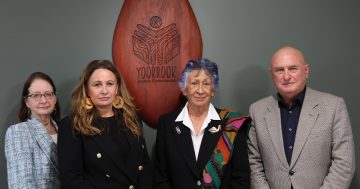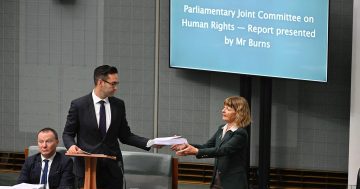
Assisting Professor Harris Rimmer with the review will be her two colleagues from Griffith University. Professor Janet Ransley will look at youth justice, while Professor Elena Marchetti will focus on victims of crime. Photo: Griffith University/LinkedIn.
The Queensland Attorney-General has appointed Professor Susan Harris Rimmer of Griffith University to lead the first independent review of the state’s Human Rights Act (2019).
Yvette D’Ath, who is also the Justice Minister, has tasked the professor with assessing the act’s implementation into the Sunshine State’s public service, from its inception in early 2020 until 30 June last year.
Among the act’s main objectives is building a culture within the public sector that respects and champions human rights, along with promoting a dialogue throughout the broader community on its nature, meaning and scope.
Queensland was the third jurisdiction to adopt human rights legislation, behind the ACT and Victoria. However, it is the first state or territory that provides a complaints and dispute resolution process within its act.
Professor Harris Rimmer said she was excited to hear from members of the public about how the act has or hasn’t been working for them, along with how accessible the new complaints mechanism is.
“I’m also looking forward to finding out where human rights sits within the ‘Even Better Public Service’ strategy, in terms of fostering a responsive and ethical public service,” she said.
The Attorney-General said she chose Professor Harris Rimmer due to her wealth of policy and academic experience in international human rights law, climate justice and gender equality.
In her time at Griffith University’s Law School, the academic has been a co-convener of its Gender Equality Research Network and involved with its Climate Action Beacon. Additionally, she has worked for the United Nations High Commissioner for Refugees, the National Council of Churches and the Parliamentary Library.
Professor Harris Rimmer also founded the EveryGen coalition, an entity dedicated to highlighting the long-term impacts of policy decisions through the younger generations.
As the reviewer, she will be required to specifically consider whether the act requires additional human rights, more or different provisions, and whether the amendments it made are operating effectively.
The Corrective Services Act 2006 was amended in relation to strip searches and authorised prisoner communications. However, the most recent amendment was in August to the Youth Justice Act 1992. It brought widespread debate and condemnation from civil libertarians because it made it lawful for young people who have been refused bail to be detained in police watch-houses indefinitely.
Queensland’s Human Rights Act mainly protects civil and political rights, but also two economic and social civil liberties that have been drawn from the International Covenant on Economic, Social and Cultural Rights: the right to education and health services.
On top of this, the act explicitly recognises cultural rights – especially those of Aboriginal and Torres Strait Islander peoples – and imposes obligations on all three arms of Queensland’s government (legislature, judiciary and executive).
The Queensland Human Rights Commission plays a significant role in the act’s workings, as it has a dispute resolution function and bears the responsibility of educating the wider community.
Under Section 95 of the Human Rights Act, the Attorney-General is required to ensure the operation of the act is independently reviewed as soon as possible after 1 July, 2023.
Following consultation with a broad range of stakeholders in government, law and the community, Professor Harris Rimmer is expected to provide a report to the Attorney-General by 20 September. Once this is complete, the Attorney-General must – within 14 sitting days – table a copy of the report in Queensland’s Legislative Assembly.











